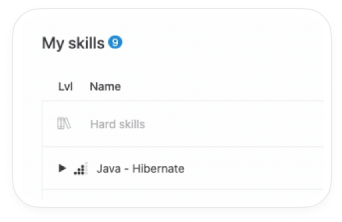Traditional HR vs HR in 2030 and beyond: Who will win the fight for the future of HR?
In early civilizations, methods existed to test intelligence, courage, and skill when selecting a leader. Hunting practices were passed on from generation to generation. From 2000 BC to 1500 BC, the Chinese used employee screening techniques, while the Greeks used an apprentice system. These actions recognized the need to select and train individuals for jobs.
Early HR specialists in the 1920s were called personnel managers. Traditional HR tasks included:
- Placing paper ads for job vacancies
- Answering benefits and payroll-related queries
- Terminating employees
What has changed over the last ten years?
The business world is becoming increasingly demanding, with increasing competition and globalization, and a push for continuous productivity improvements to gain market share. Digital transformation has forced organizations to rethink how to maintain their competitive advantage in the continuously changing market environment by using their people as effectively as possible.
Furthermore, other forces are pushing organizations to reconsider their HR function to meet strategic business demands and ensure future business success.
Changes in the business environment
The most fundamental change in the business world over the past ten years has been in the realm of employee management. The pandemic has changed the world of work forever. Millions of people and businesses worldwide moved overnight from working in the office to working from home and from interactions that occurred mostly in person to interactions that mainly occurred online. With remote work picking up pace, organizations had to break out of predictable ways of working and reconfigure existing routines.
Additionally, more organizations are running global businesses today, leading to HR managers managing employees across various business functions, product lines, cultural backgrounds, etc. All these changes demand a flexible and effective HR management style.
Service improvement
The traditional HR function is only concerned with essential tasks such as selecting the right people for the organization, managing the employee database, and assessing employees. However, increasing employee demands will force HR departments of the future to perform more valuable tasks. Value-creating activities such as standardizing work processes and coordinating tasks must be done by future HR professionals in order to meet workplace demands.
Workforce diversity
As a business develops and expands, it leads to a diverse and multicultural work environment. The future workforce requires HR professionals to create and manage a harmonious culture and cultivate widely accepted workplace values.
Take a look at what Stephen O’Donnell, Chief Growth Officer at TAtech, says in an interview with HRForecast about critical upcoming challenges in recruiting.
Technological development
Another important force driving the transformation of the HR function is technological advancement. Technology enables organizations to improve their business competence in various ways. Rapid technology changes require future HR professionals to acquire new skills through education or by sourcing HR professionals with specific IT capabilities.
What is the future of HR?
Modern HR puts more focus on long-term organizational development than traditional HR. Let’s take a step back in time and break down the origins of traditional HR and how it has evolved into HR of the future.
Responsibilities of traditional HR:
- Focus on issues such as personnel management and labor relations
- Manual data entry and processes, making HR tasks time-consuming and error-prone
- Focus on current employees and workforce only
- Step in when employees have discipline problems or stir up trouble
Responsibilities of HR of the future:
- Focus on employee recruitment, training and development, disciplinary processes, and finding ways to align employees’ and the company’s goals
- Use tools and technologies to help future HR professionals reduce their workload and improve efficiency
- Plan what skills will be needed in the future
- Let employees know from the start what behavior is unacceptable
These lists of responsibilities show the differences in approach between traditional HR and HR of the future. There are more duties and responsibilities placed on HR leaders today. These include:
- Develop a strong corporate culture, code of corporate ethics, and employee-related policies
- Act as an internal change agent and consultant
- Be responsive to New Work changes and act as a facilitator to incorporate them
- Maintain effective communication between the organization’s employees and external parties or stakeholders
- Identify and evolve human resource development strategies in accordance with the overall business strategy
- Facilitate the development of different teams within the organization and connect them in a healthy working relationship
- Diagnose problems such as those connected to absenteeism, high employee turnover, etc., and give meaningful solutions to the problems and challenges experienced by employees
- Provide coordination and support services for the delivery of employee learning and development programs
- Conduct a performance review to identify, develop, or test changes in employee performance
Future CHRO job profile
Read and download the template that helps to focus and modify the nuances and complexities of the Chief Human Resource Officer (CHRO) job role to prepare them for the future of work.
Future HR solutions
Transitioning from a traditional state to a more future-oriented one is a complex process for organizations, especially when they’re not fully prepared for the change. However, the transition to future HR solutions should happen alongside developing of new skills, leading to continuously changing managerial requirements. So what are some future HR solutions?
Develop a deeper understanding of what drives the business strategy
In an agile and fast-changing world, a grasp of business nuances will be even more critical, as the margin for error is small and decision-making delays will be costly. As a result, future HR leaders must constantly work to strengthen the workforce and its productivity and amplify the organization’s competitive advantage, agility, and flexibility.
Creating a healthy corporate culture must take center stage
The future will become complex with a diverse, multi-faceted workforce. As a result, having an inclusive culture will become a business priority. HR leaders must create and facilitate a culture that enables employees to meet their purpose and feel included. Moreover, elements of culture that differentiate a business, such as a focus on continuous learning, will be expected from HR of the future.
Be an enabler and change agent to facilitate digital transformation
In the next decade, businesses will need to quickly change and ramp up new capabilities. Leading change and transformation will be a big task, and future HR leaders need to develop mechanisms to enable faster and smoother transformations. The future HR leader needs to have a true sense of what’s happening in the external environment to proactively plan for change within the organization.
Proficiency in data analytics and its use in decision-making
A deeper appreciation of modern technology, its impact on work, and ways of leveraging technology to improve HR-related decision-making will be critical for a successful CHRO (Chief Human Resources Officer). Future HR leaders need to develop an understanding of data analytics and, at the same time, address the issues of bias and exclusion. Technology and data are integral to decision-making at all levels — and key to the organization’s competitive advantage.
Ready or not, the future is coming, and it will have a direct impact on your workforce
The central aim of modern human resource management is to enhance employees’ development, involvement, and contribution throughout the organization. However, future HR professionals can mitigate the potentially unsettling impact of future trends by anticipating potential changes, studying the labor market, and preparing for and communicating changes and benefits to stakeholders.
Subscribe to our newsletter to keep up with all future HR-related topics, be it current technology trends, organizations and employees’ attitudes towards technology, and more.
Stay up to date with our newsletter
Every month, we’ll send you a curated newsletter with our updates and the latest industry news.



























 info@hrforecast.de
info@hrforecast.de
 +49 89 215384810
+49 89 215384810






